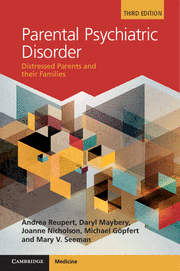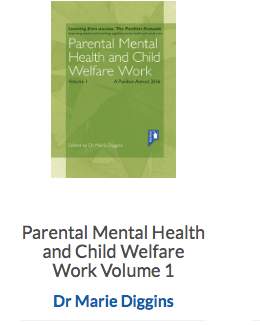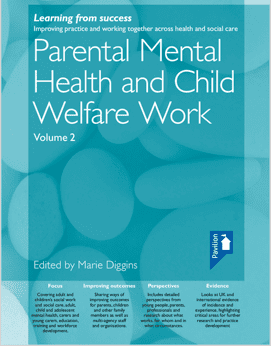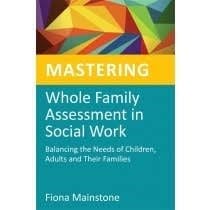Presentation for New South Wales Health: Transgenerational Mental Health and The Family Model – Theory and practice
Translating The Family Model into Practice Change (Chapter in Parental Psychiatric Disorder: Distressed Parents and Their Children, 3rd Edition).






The Pavilion Annuals (Learning from success):
•The Family Model (Vol 1, Ch 17, 2016). Pavilion Publishing. E Sussex.
•Using TFM in training: a light bulb moment (Vol 1, Ch 5, Mackenna).
•Integration of The Family Model into educational programs: The Family in Mental Health (Vol 2, 2017, Weimand & others).
•Think Family Northern Ireland (Vol 2, Ch 22, Donaghy)
•Working with multi-level relationships to improve child protection outcomes in families experiencing mental health difficulties (Vol 2, Nyathi and Akister).
Mastering Whole Family Assessment in Social Work: Balancing the Needs of Children, Adults and Their Families’ (Mainstone, 2016).


•Incorporating children and young people’s voices in CAMHS services using TFM (Journal of Social Inclusion, Hoadley and others, 2017).
•The acceptability of a single session family focused approach for children/young people and their parents attending a child and youth mental health service (Advances in Mental Health, Hoadley and others, 2018).
•The Family Model (Journal of Parent and Family Mental Health, Falkov, 2017).
•Family-focused practice in mental health care: An integrative review (Child & Youth Services, Foster and others, 2016)
•A systems approach to enhance global efforts to implement family focused MH interventions (Child & Youth Services, Falkov and others, 2016).
•What is The Family Model?
•Who should use The Family Model?
•The Family Model structure
